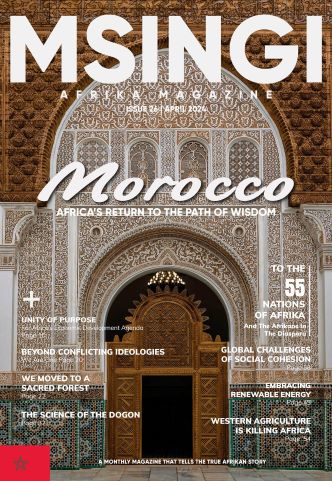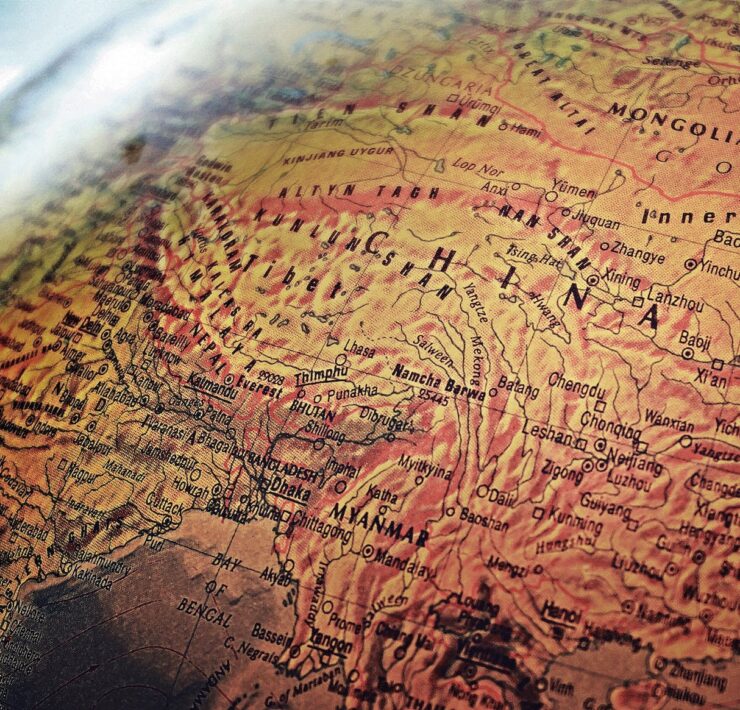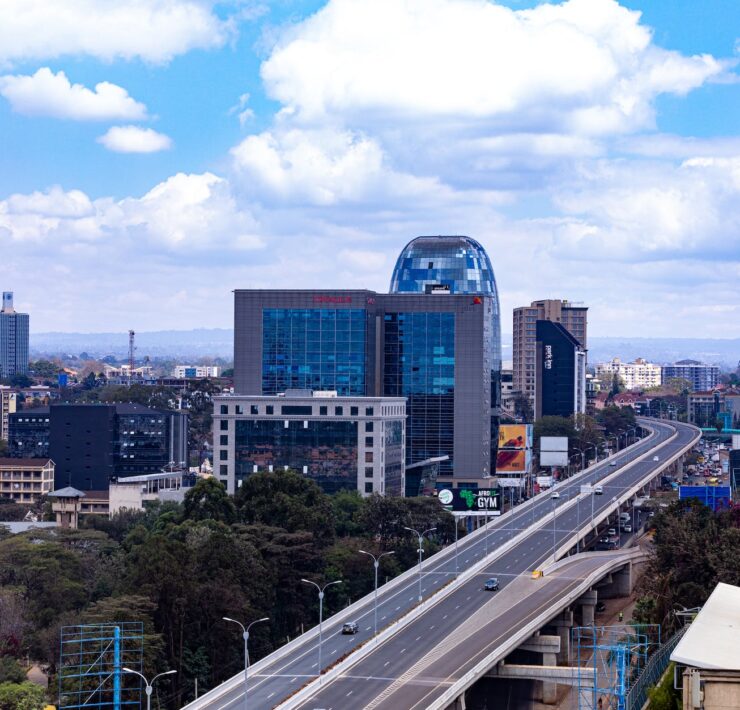NATION IN VIEW: MOROCCO

Samuel Phillips is a writer, graphic designer, photographer, songwriter, singer…
Africa’s Return to the Path of Wisdom
It is very interesting to me how when you mention that Africans should go back to embracing the ancient wisdom systems that created all this awe about ancient Africans, what first comes to mind is, going back to embracing the spirituality or the religious cultures of ancient Africa. It just sounds as if that’s the only thing about ancient Africans worth mentioning. But the African ancient wisdom systems also include the wisdom that they used to cultivate the land in a non-destructive way; natural medicine, and healing systems; natural home-births; eco-friendly environments; breathable architecture that used natural materials; education that raised children as part of the whole community and not what we have today that creates useless competitions among our children; clean and gut health nutrition which they got from their food; clean air; good relationships between people, you name it. Spirituality definitely is the central force that kept the community together, which is why most African family compounds or communities have their shrines in the midst of the compound as a uniting force for the whole, but this is not the only thing that the ancient Africans were known for.
And not to lie to ourselves, some of those spiritual or religious cultures carry with them some acts of savagery, like the killing of slaves for the funerals of kings or royalty, the killing of twins in some parts of Africa, blood rituals and sacrifices, the worship of evil entities, etc. And this is a common thing in every culture of the world. There are the good sides and the bad sides. But we must focus on the good sides, embrace them, and also build on them.
Some ancient African wisdom that we need today
Architecture
Currently, there is a whole lot of buzz globally about climate change, sustainable development, etc. One area that is notorious for greenhouse emissions is the construction sector which accounts for about 38% of global greenhouse emissions, according to UNEP. But the good news is that the solution to greenhouse emissions is mostly found in Exploring Eco-friendly, Earth-Building Technologies For A Greener Earth. Period. This is a thing that ancient Africans knew so well, practiced, and went ahead to create eco-friendly homes, communities, and environments.
Morocco is one country in Africa that has maintained its beautiful ancient architecture. Ancient Moroccan architecture was known for the use of earth or mud brick called pisé (French). Just like you see on the coast of Kenya, where the Swahili architecture which was built using limestone, lime, coral, etc. still grace the landscape.
Much of Morocco’s traditional architecture is marked by the style that developed during the Islamic period, from the 7th century onward. This architecture was part of a wider tradition of “Moorish” or western Islamic architecture, which characterized both the Maghreb (Morocco, Algeria, and Tunisia) and al-Andalus (Muslim Spain and Portugal. It blended influences from Amazigh (Berber) culture in North Africa, pre-Islamic Spain (Roman, Byzantine, and Visigothic), and contemporary artistic currents in the Islamic Middle East to elaborate a unique style over centuries with recognizable features such as the horseshoe arch, riad gardens, and elaborate geometric and arabesque motifs in wood, carved stucco, and zellij tilework. (Source: Wikipedia)
We have to return to the use of natural earth materials for our modern-day architecture. They are cleaner, cheaper, eco-friendly, and also breathable.
Health system
African traditional medicine is a form of holistic health care system organized into three levels of specialty, namely divination, spiritualism, and herbalism. The traditional healer provides health care services based on culture, religious background, knowledge, attitudes, and beliefs that are prevalent in his community. Illness is regarded as having both natural and supernatural causes and thus must be treated by both physical and spiritual means. Herbal medicine is the cornerstone of traditional medicine but may include minerals and animal parts.
Herbal medicine was once termed primitive by Western medicine but through scientific investigations, there is a better understanding of its therapeutic activities such that many pharmaceuticals have been modeled on phytochemicals derived from it. Even though it is a well-known thing that when foreign pharmaceutical companies come to Africa to get major components from the plants that are found in Africa for their medicines, they don’t give credit or worthy compensation to the communities from where they get the plants, but that does not take away from the effectiveness of Africa’s holistic health system.
The point I am making is, we need to take seriously our African holistic medicine that factors in the whole of the person, the root cause of diseases, and not symptoms that modern medicine concentrates on.
Education
Learning and education that occurred in Africa were necessitated to meet the exigencies of the whole society through training of its members either in groups or on an individual basis. This approach fostered cooperation and collaboration amongst the community members and promoted the perfection of knowledge and skills before being transmitted to posterity. According to Vanqa (1995) essentially training was intended to enable an individual to play a useful role in society. It is important to mention that the learning did not follow any comprehensive and formal curricula, which in most cases resulted in important knowledge and skills getting lost when the custodians of such knowledge and skills died or lost their cognitive abilities. But here is where modern-day recording systems can help. And like health, African education deals with the whole person in connection with the community.
And to be frank, this generation of Africans has so much modern knowledge but has been cut off from the wisdom of the past that sees the whole rather than just the individual. We need to bridge that gap again.
From the three examples above, it’s easy to see that African wisdom and knowledge system were created in such a way that fostered holistic healing of a person, and community cohesion, which when contrasted with the modern-day system of knowledge, is miles apart. The culture of modern-day individualism and consumerism is a corruption that must be dealt with using ancient African wisdom.
Prayer for Morocco
Ancient Moroccan architecture is just a fragment of what you bring to the African table, so, may you find more grace to share more African wisdom for life and living and the betterment of all Africans.
You are blessed Morocco and may you remain blessed and lifted above all that fights against your progress.
What's Your Reaction?
Samuel Phillips is a writer, graphic designer, photographer, songwriter, singer and a lover of God. As an Afrikan content creator, he is passionate about creating a better image and positive narrative about Afrika and Afrikans. He is a true Afrikan who believes that the true potential of Afrika and Afrikans can manifest through God and accurate collaborations between Afrikans. Afrika is the land of kings, emperors, original wisdom, ancient civilizations, great men and women and not some road-side-aid-begging poor third world continent that the world finds joy in undermining.
















